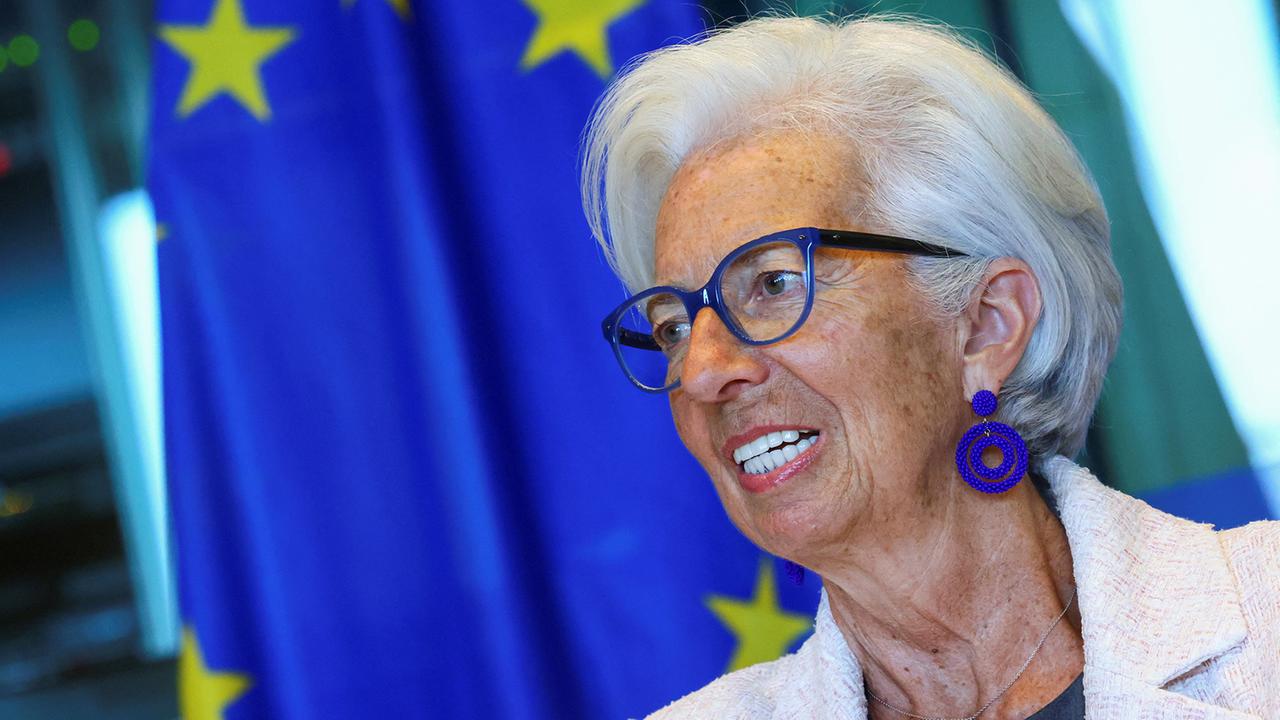In an unusual way, the ECB has criticized the economy for artificially driving up inflation. What is annoying for consumers becomes a problem for the currency watchdogs: they cannot do anything against greed for profit.
Again and again the old lady takes the small pack of chicken fillets out of the freezer, looks at them, then looks into her wallet and puts them back. With 5.98 euros, the discounter, which likes to advertise itself as particularly cheap, also demands a proud price. The mini product was only half the price a few months ago. But the new price is too high for the pensioner. Instead, she walks down three rows and grabs the packet of spaghetti.
How expensive groceries have become
Food is still the number one price driver in Germany and it significantly reduces the disposable income of many people. Even though the inflation rate in Germany fell somewhat in May compared to the previous year to 6.1 percent, food prices continued to rise massively – by almost 15 percent. In particular, dairy products (up 28 percent), bread (up 19 percent) and fish (up 19 percent) became more expensive. Consumers also had to dig much deeper into their pockets for jam, chocolate and vegetables.
Originally, the consequences of the Corona crisis, the war against Ukraine and high energy prices were the triggers for high inflation. It is now becoming increasingly clear that many companies are also artificially driving prices. “Greed inflation” is the name of the phenomenon in which companies charge significantly more on the final price than the increased costs for electricity, gas or primary products justify.
“Prices increased beyond mere cost pressure”
This “more” is now becoming a price driver in itself and thus a challenge – so much so that even ECB President Christine Lagarde found clear words before the Economic and Monetary Affairs Committee of the European Parliament: “Most companies would have “used the advantage, the higher Passing the cost entirely onto the customer,” said Lagarde. “And some of them have increased prices beyond mere cost pressure.”
Not only the ECB, but also numerous other studies document the phenomenon of greed inflation. For the food sector, the credit insurer Allianz Trade examined the market and came to the conclusion: “There seem to be increasing signs of profit-taking and insufficient competition,” says inflation expert Andy Jobst. This is especially true for manufacturers of dairy products, eggs and non-seasonal fruits and vegetables.
Distract from your own omissions?
Many consumer advocates made random checks that revealed that the high price increases for some products were “neither justified nor understandable,” according to the results of the North Rhine-Westphalia consumer advice center. A study by the Munich-based ifo Institute found that not only trade, but also the hospitality, transport and construction sectors understood exactly how to raise prices more than necessary.
In fact, inflation is also particularly severe in tourism: Airlines on popular routes today charge twice as much ticket prices on average as they did a year ago, even though kerosene prices have fallen drastically. The tour operators also hit hard on package tours – knowing full well that after years of corona deprivation, the Germans in particular are apparently willing to pay everything the market demands.
For the ECB, the developments now presented are an argument to distract from its own failures in combating inflation. But they also pose a major problem for the monetary authorities: greed is difficult to curb with monetary policy. Neither interest rate hikes nor tight monetary policy will help against unjustified inflation.
Cartel authorities have not yet intervened
For this reason too, ECB President Christine Lagarde went one step further: Before the EU Parliament, she called for the national competition authorities to deal with the issue of greed inflation. “I would definitely consider that absolutely appropriate,” she told parliamentarians. But Lagarde doesn’t have to have much hope: Last August, Andreas Mundt, President of the Federal Cartel Office, responsible for proper competition in Germany, reported a sharp increase in complaints about unfair price increases for food. In individual cases will be checked. So far nothing has happened.
So the ECB will raise interest rates again this week, even if the turnaround in interest rates is now leaving its first mark on the weak economic development. Because investments have become significantly more expensive, many companies are holding back. Consumer sentiment is already in the basement. After Germany, the entire euro zone has now slipped into recession. Not massive, but still strong enough that voices in the Governing Council of the ECB warning against excessively high interest rates gain momentum again.
Stubborn inflation
But Christine Lagarde has learned one thing in recent weeks: her reputation is linked to successfully fighting inflation. “If you ask me if I’m happy with where we are now,” she asked rhetorically recently tagesschau.deinterview and immediately respond: “No, I’m not satisfied. I will only be satisfied when we reach our goal, that is, inflation of two percent in the medium term.”
However, it may be months before that happens. Because the surge in inflation is very persistent and difficult to contain, despite initial successes. The pensioner in the supermarket will therefore continue to calculate, save and have to do without some things. Not just her.





